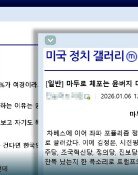Teacher Evaluation Trial Schools Picked
Teacher Evaluation Trial Schools Picked
Posted November. 18, 2005 08:26,
Deputy Prime Minister and Education Minister Kim Jin-pyo announced the pilot schools that have been selected for the new teacher evaluation system and measures for reducing class hours yesterday afternoon. With this announcement, Kim asked education groups to cooperate with this plan.
A total of 116 schools (national schools accounted for 4.3 percent of the total, public schools 81 percent, and private schools 14.7 percent), including 62 primary schools, 26 middle schools and 28 high schools, applied for this system drawn up by the Ministry of Education and Human Resources Development (MEHRD).
The MEHRD originally planned to single out a single primary school, middle school and high school, respectively, but with application withdrawals or abandonment due to the Korean Teachers and Educational Workers Union (KTEWU)s intervention, failed to select a single middle school from Gwangju and a single high school from Daejeon, Ulsan and South Jeolla Province. Instead, the MEHRD selected two high schools from Daegu, North Gyeongsang Province and South Chungcheong Province, respectively. A total of 68 schools excluded from this announcement will take part in this system starting next March by being designated as preliminary pilot schools.
Among the 116 schools, the number of schools that selected Measure A, in which principals, vice principals and teachers all will participate in this system, was 64. Measure A has been supported by the MEHRD and the Korea Federation of Teachers Associations (KFTA). For Measure B (only teachers with the exception of principals and vice principals will evaluate their performance each other) that reflected KTEWUs opinion, 52 schools selected it. Among the schools selected by the MEHRD, 26 schools were in favor of Measure A, and 22 were in favor of Measure B.
Number of teachers to increase to 55,000-
The MEHRD has decided to increase the number of teachers by 6,100 per annum to a total of 55,000 starting next year through 2014, and post a total of 15,300 administration-support employees to each primary school, middle school and high school in order to establish the teacher evaluation system early.
With these plans in place, a total of 1.7 trillion won, based on an annual 190 billion won expenditure, will be spent. The average class hours per week that a single teacher from each primary school, middle school and high school will teach will go down from the current 26 to 20, 21 to 18, and 18 to 16, respectively.
The Education Ministry has also decided to introduce several plans: Improving the current principal promotion system from the existing seniority-based system to an ability-based system, consulting measures for securing objectivity in the teacher performance evaluation system with education groups, tightening teacher qualification standard and introducing an evaluation approval system for evaluating teacher training institutes starting in 2009.
The Education Ministry has decided to come up with measures to improve the teacher training system, teacher education system, and teacher promotion system through the Presidential Committee on Education Innovation until next February.
KTEWU warns of strikes-
KTEWU Chairman Lee Su-il said yesterday, We asked the education authorities to stop launching this system unilaterally while withdrawing our plan to stage a strike, but the Education Ministry spurned our request. Lee also asked the Education Ministry to stop its teacher evaluation pilot program, obtain the number of teachers according to the law, enact standard class hours, secure funds for education, and draw up measures for improving the teacher performance evaluation system.
Some schools applied for this system by using false signatures without agreements made by their teachers, and some principals applied for it without notifying their teachers, insisted the KTEWU. These schools are mostly small-sized schools with less than six classes or private schools from agricultural and fishing areas, which have few unionized teachers.
In response, the Education Ministry explained, There were only six small-scale schools, adding, Only when this system is introduced on a trial basis after singling out various schools in accordance with the size of schools and goals of foundation, can we make good role models.
The government has enforced this system that most teachers opposed after breaking its promise to proceed with it in cooperation with education groups, said KFTA. The government should seek understanding from teachers who are the main subject of the teacher evaluation system and come up with measures that reflect front-line teachers opinions fully.
In-Chul Lee Seong-Chul Hong inchul@donga.com sungchul@donga.com



![[속보]내란특검 “尹, 전두환 세력보다 엄정하게 단죄해야”](https://dimg.donga.com/c/138/175/90/1/wps/NEWS/IMAGE/2026/01/13/133151025.3.jpg)
![[속보]윤석열 ‘내란 우두머리 혐의’ 사형 구형…내달 1심 선고](https://dimg.donga.com/c/138/175/90/1/wps/NEWS/IMAGE/2026/01/13/133151126.3.jpg)


